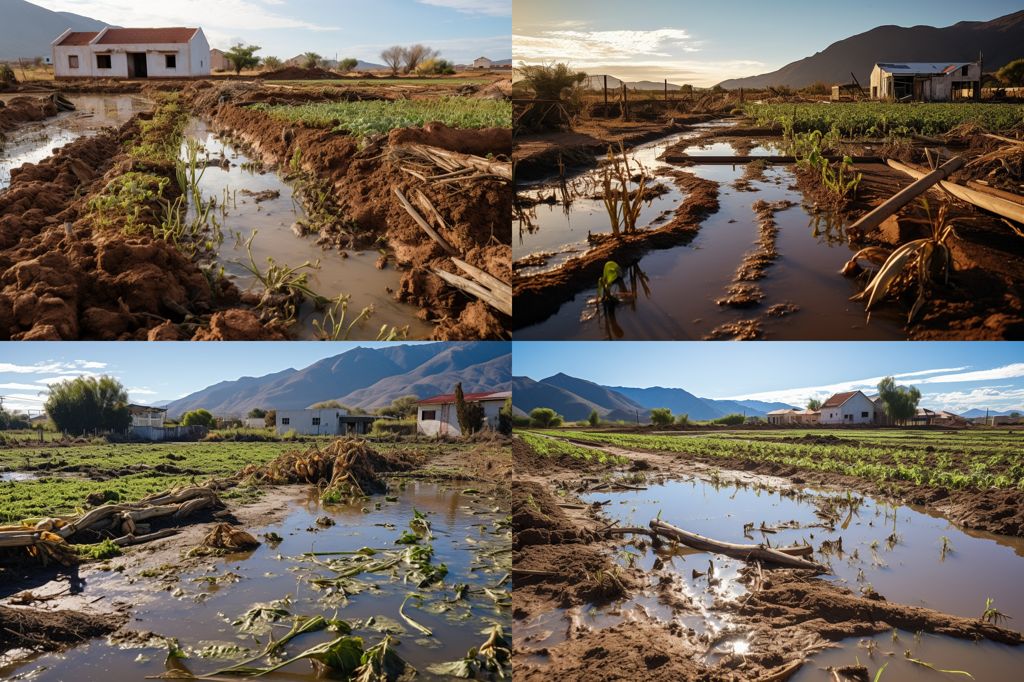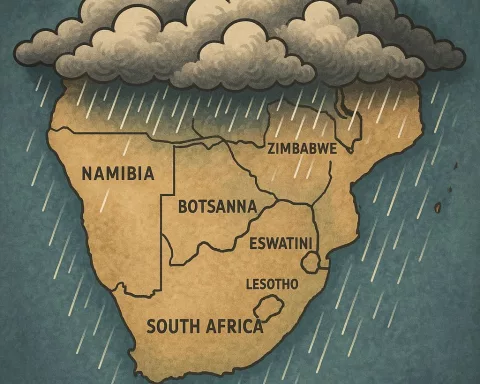Small-scale farmers in the Cederberg region of the Western Cape, South Africa, have been relying on their fertile lands to grow crops and sustain their families for many years. However, the recent floods that swept through the area have left behind a trail of devastation. The local agricultural community is struggling to recover from the worst flooding in four decades.
Once-Productive Lands Rendered Unusable
The Cederberg region, nestled within the rugged mountain range, was once teeming with thriving vegetable gardens and farmlands. These lands were carefully cultivated by dedicated farmers, who provided sustenance to their families and the surrounding community. However, the unprecedented floods obliterated crops, rendering the once-productive lands unusable.
The Catastrophic Impact of the Floods
The Western Cape Department of Agriculture estimates the damage to agriculture and infrastructure to be a staggering R1.05 billion. As the region struggles to rebuild, farmers like Janelle Simons face a grim future – desperately trying to salvage waterlogged crops, while questioning when they will be able to plant again.
The catastrophic floods have also impacted the local economy, with many farmers unable to provide for their families or the community. In the town of Citrusdal, 63-year-old Willem Klaasen saw his crops decimated by the floods, and now worries for the future as the ground remains too wet for planting.
A Bleak Future for Farming in the Region
Similar tales of despair can be found in the nearby town of Clanwilliam, where farmer Trevor Ludick saw his crops washed away by the floods. With the looming threat of another disastrous year, Ludick expressed his concerns about the future of farming in the region.
The Broader Impact of Climate Change
The impact of the floods has also resonated beyond the immediate farming community. Wasiela Douries, a farmer in Graafwater and an employee at the Sandveld Local Development Agency, explained how unpredictable weather patterns have led to widespread destruction.
The Call for Disaster Relief
The provincial department of agriculture has called for three Western Cape districts to be declared disaster areas. This would enable funds to be reprioritized and requested from National Disaster Management.
The Importance of Climate Resilience
Recognizing the importance of climate resilience, the provincial department has been engaging with the Cederberg farmers on climate change and disaster risk-reduction and mitigation measures.
Building Resilience in the Agricultural Sector
The ordeal faced by the farmers in the Cederberg region highlights the broader challenges of climate change and the importance of building resilience within the agricultural sector. As they strive to adapt and learn from this devastating experience, the future of farming in the region remains uncertain. Increased awareness and support can help safeguard their livelihoods against such calamities.












